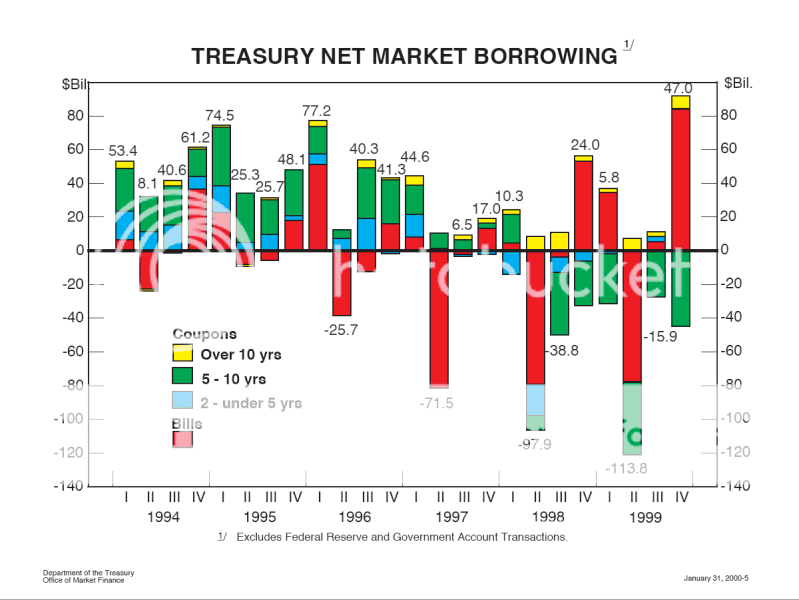justabubba
Member
- Aug 14, 2008
- 156
- 28
- 16
I can't imagine who you are referring to when you say "partisan asshole", but I've never denied if you look at total debt from a fiscal year basis, the year ending 9/30/00 increased 17 billion.
But "some folks and extreme partisan assholes refuse to acknowledge truth" which is that for the year ending 12/31/00, the total debt in fact decreased by $114 billion.
And of course every federal government agency says there was a budget surplus, as does most the media, unless you want to rely on a blog by a computer programmer for your position.
i am receptive to seeing your explanation for the increases in the federal deficit during the years clinton was claiming a budget surplus
it would seem, using basic math, that the national deficit would actually have declined over that period had there been an actual surplus
based on the fiscal year-end data, offered by dave and steiner and the federal government, there was no decline in the deficit. if the deficit increased it was only because a budget deficit - not a surplus - existed
what have i missed? i anticipate your explanation
and a brief tangent on another approach you have taken. 12/31/XX data is not meaningful for an organization which has a year end of 09/30/XX. the 12/31 data is referred to as interim data by those who analyze financial information; the analysts would find interim data to be much less reliable than year-end data. the federal government operates its fiscal year from 10/01 thru 09/30, thus causing 12/31 information to be questionable ... certainly more so than that provided for fiscal year end
when you compare apples to oranges the result is fruit salad. so let me ask you to explain the discrepancy of data using fiscal year end data ... for accurate comparison and because i am not in the mood for fruit salad


